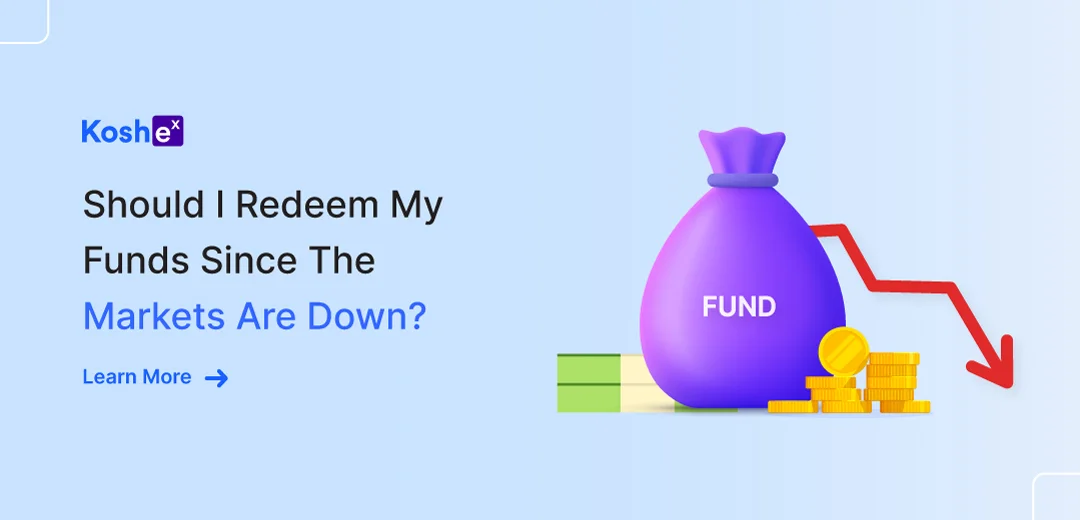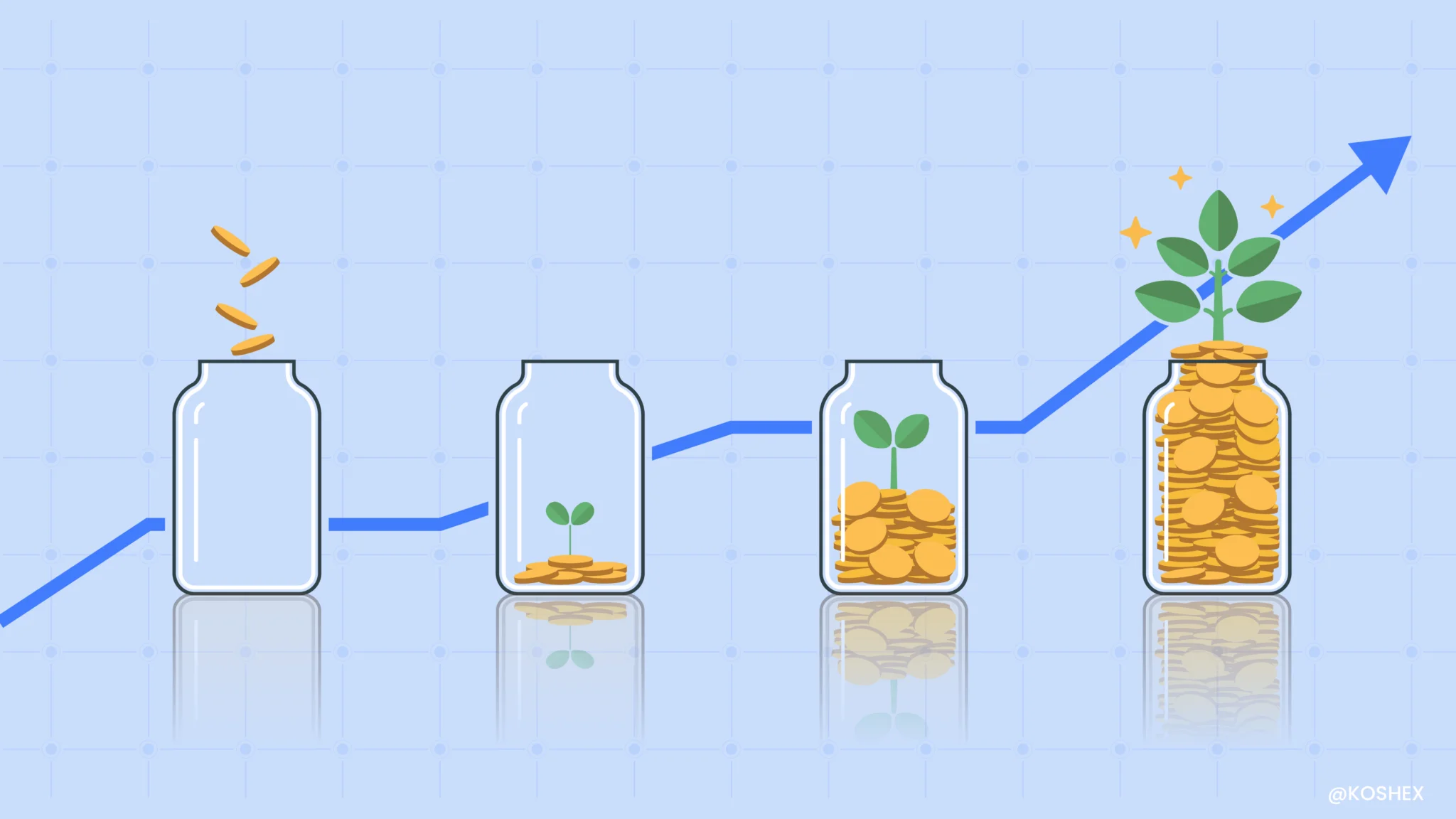With the current market conditions, feeling a little anxious about your investments is normal. The stock market is volatile and can go up and down, leaving many of us wondering if we should take our money out and hold onto it until things settle down.
But before making any decisions, we must understand our financial situation. Are we in a position where we need the money soon, or can we afford to ride out the ups and downs of the market?
In this article, we’ll explore the factors that come into play when deciding to redeem our funds during a market downturn. Together, we’ll help you make an informed decision that’s right for you and your financial future.
Some Facts About the Markets
1. Markets are Always Fluctuating
It’s important to remember that the stock market is not a one-way street. It’s natural for the need to experience ups and downs. Even the most experienced investors can’t always predict when these fluctuations will occur.
But, over the long term, the stock market has historically advanced upwards, and many investors see this as an opportunity for growth.
2. Historical Perspective on Market Dips
In the past, market dips have always been followed by a recovery, and the stock market has always bounced back. It’s essential to keep this in mind when considering whether to redeem your funds.
While selling in a down market may be tempting, history suggests that staying invested can lead to greater returns in the long run.
3. Stock Market And Economy Are Not Twins
It’s also important to remember that the stock market is not the same as the economy. The stock market is just one indicator of the economy. While it may be affected by economic conditions, it’s not a direct reflection of the economy as a whole.
The economy is much more complex and influenced by a variety of factors. This includes politics, consumer behavior, and global events.
Pros of Cashing Out
1. The Power of Buying Low and Selling High
One advantage of redeeming our funds during a market dip is the chance to buy at a lower price, potentially setting ourselves up for a big win in the future. When the market takes a drop, it’s typical for stocks and other investments to decrease in value, allowing us to scoop them up for a better deal.
2. Protecting Investments with Safe Havens
Redeeming our funds can also allow us to reallocate them to safer investments. Especially if our investment goals are in sight or if retirement is looming. By moving some of our funds to safer options, we can reduce risk and give ourselves peace of mind knowing our hard-earned savings are protected.
3. Reaping Short-Term Rewards
Lastly, redeeming our funds during a market dip can offer the potential for quick returns. We may see an immediate bump in our returns by taking advantage of market conditions and reallocating to safer investments. This can help us reach our investment goals faster and boost our financial security.
Understanding the Risks of Redeeming Funds
1. Timing the Market is Difficult
When the market is down, it can be tempting to want to redeem our funds and take advantage of the dip. But timing the market is a difficult task, even for the experts. If we redeem our funds too soon, we may miss out on a potential recovery in the market.
But, if we wait too long, the market could continue to decline, and we could miss out on the opportunity to reallocate our funds to safer investments.
2. Miss Out on Potential Long-Term Growth
Investing in the stock market is a long-term game. Redeeming our funds during a market dip could mean missing out on potential long-term growth. While the market may be down in the short term, it has historically recovered and gone on to new highs. By redeeming our funds, we may miss out on these long-term gains.
3. Selling Low Could Lead to Losses
When we redeem our funds, we are selling our investments. And if we sell when the market is down, we may be selling at a lower price than what we initially invested. This could lead to realizing losses rather than the gains we were hoping for.
It’s important to remember that the market is cyclical and will go through ups and downs. It’s crucial to have a long-term perspective and not get caught up in short-term market movements.
Factors to Consider for Your Decisions
1. Define Your Financial Dreams
Every person’s financial journey is unique, and our goals significantly shape our investment decisions. Whether securing a comfortable retirement, buying a home, or saving for a child’s future, we must consider our objectives. Our financial goals have the upper hand when deciding whether to redeem our funds.
2. Time is on Your Side
Our investment time horizon is crucial in determining whether to hold onto our investments or redeem our funds during a market dip. The longer we invest, the more time we have to weather market fluctuations and potentially recover losses.
So, if you’re in it for the long haul, it might be a good idea to stick with your investments, despite market conditions.
3. Embrace Your Risk Appetite
The level of risk we’re willing to take on with our investments is another crucial factor to consider when deciding whether to redeem our funds. If you like to play it safe, market dips might be nerve-wracking, and you might be tempted to sell.
But it’s essential to remember that market fluctuations are expected, and if you sell now, you might miss out on potential future growth. It’s crucial to understand our risk tolerance and make investment decisions accordingly.
Ways to Navigate Market Volatility
1. Average It Out
With this strategy, you’ll regularly invest a fixed amount no matter what the market’s doing. Over time, this helps even out your investment costs and lowers the impact of market swings.
2. Rebalancing portfolio
Sometimes, one of your investments may grow more than others. Rebalancing lets you sell some more significant investments and put the money into others to stay on course for your long-term goals. For example, if a particular investment has increased in value, you might sell some of it. And reinvest it in another asset class to align with your long-term goals.
3. Stick to Your Plan by Holding On
This strategy involves keeping your investments as is, despite the market conditions. Holding onto your assets can be a good choice if you’re in it for the long haul and okay with some ups and downs. Just ensure you’re keeping an eye on your portfolio to remain aligned with your financial goals and comfort level with risk.
Conclusion
At Koshex, we understand that human behavior often influences financial decisions. On top of it, making good decisions is just a matter of habit. Our 360-degree approach empowers individuals to make better financial choices.
We provide tools to assess and differentiate the value of potential future outcomes, bridging the gap between individuals and institutions for long-term benefits for both. Sign up with Koshex to start your journey to financial empowerment.









Leave a Comment